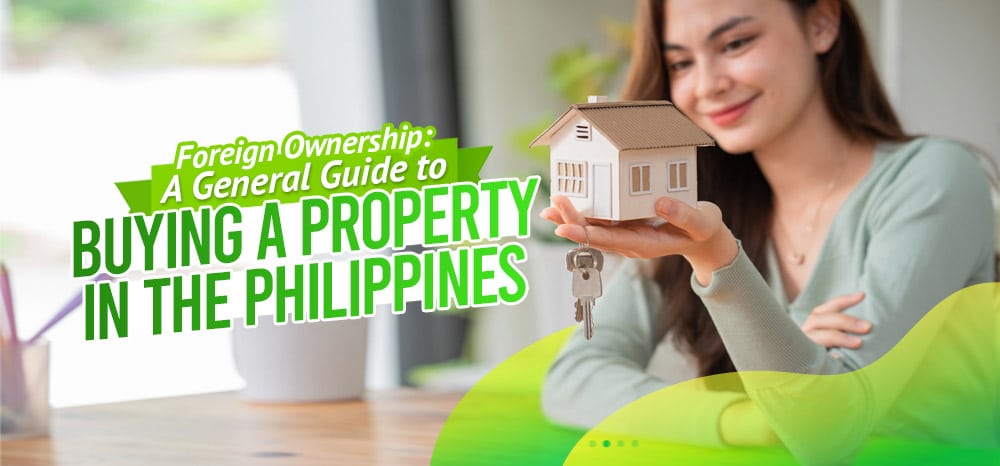With its year-round tropical weather, countless beautiful beaches, and friendly locals, the Pearl of the Southeast is a very attractive retirement location for many Westerners.
Let’s not even talk about how much farther your $$$’s will go here. Currently, 1 Australian dollar equals 34.79 Philippine pesos. Furthermore, InternationalLiving.com estimates that you only need USD1,525 (about AUD2,180) monthly to live comfortably.
We’re talking about a fairly big house or apartment, more than enough food, and staff. Heck, one dude on a Reddit thread once said that he lives like a king in the Philippines. For under Php60,000 or around AUD1,723 monthly, he could hire a maid, a cook, and a driver. Wicked.
But before you start planning for retirement in the Philippines, there is one other thing to consider. I’m referring to where you’ll live.
Now, under Philippine law, foreigners can’t legally own any land in the Philippines. They can, however, own residences.
Huh? How does that work? Read on and find out.
Conditions That Allow Foreigners to Acquire and Buy Philippine Real Estate

Image Credit: realestatepropj.weebly.com
Land ownership in the Philippines is reserved for Filipino citizens. Foreigners may purchase property through a corporation, provided that 60% of the latter is owned by Filipinos. On the other hand, there are exceptions, such as:
- The property was acquired before 1935;
- A non-Filipino inherits the property through natural succession or legal heirship. This only applies if the said property was acquired before 1935, though;
- A maximum of 40% of the units in a condo project;
- The foreigner was formerly a natural-born citizen. However, in this case, s/he may own a maximum of 1,000 square meters of urban land or 1 hectare of rural land.
- Via a Filipino spouse who has retained their Filipino citizenship.
For the specifics, it would be best to consult with a lawyer or a real estate agent.
Transaction Fees Involved

Image Credit: hsta.org
- Acquiring real estate will incur costs that go beyond the property price, and the Philippines is no different. Typical ones in this country include:
- Capital Gains Tax. This comprises 6% of the property’s sale price, zonal value, or fair market value, whichever is higher. The seller usually takes care of this, but s/he might also roll it into the total purchase price.
- Documentary Stamp Tax. To compute, you need to get 1.5% of the sales price, zonal value or fair market value, whichever is highest.
- Transfer Tax. The property’s location can affect this figure, which is 0.5% to 0.75% of the sales price, zonal value or fair market value, whichever is highest.
- Title Registration Fee. Generally, this is around 0.25% of the sales price.
Ideal PH Real Estate Options for Foreigners

Given all that, what sort of real estate should you go for? Here are some ideas:
-
- Condominium units. Perhaps the easiest option on the list, condos are the ideal solution to owning your home but not the land it sits on. As per the Philippine Condominium Act, foreigners can purchase condo units so long as 60% of the remaining ones are Filipino-owned.
Location, of course, is key to choosing a good condominium. You’ll want one that’s accessible via public transportation and is close to shopping malls, supermarkets, or hospitals. Do note that you’ll be sharing amenities with other tenants, so a building with fewer units per floor would be great.
Should you opt for a condo unit, you will need to pay certain fees each month after purchase. These include utility bills and association dues, which cover the building’s maintenance and staff salaries.
-
- Houses. Remember what we said about owning your house, but not the land it’s on?
So, foreigners can buy a freestanding house but lease the property. According to the Investor’s Lease Act of the Philippines, foreigners can enter into a lease agreement with a Filipino landowner. Such a long-term lease would last an initial period of up to 50 years, with the option to renew for another 25.
-
- Corporate-owned properties. So long as the corporation is 60% Filipino-owned, a foreign incorporator can purchase a property through it. But first, the said company should register with the Board of Investment (BOI). It should also have the requisite permission to buy/sell, or act as an intermediary in the real estate transaction.
As with former natural-born citizens, size restrictions apply. Through this method, foreigners may only purchase a maximum of 1,000 square meters of urban land and 2.5 acres of rural land.
Lastly, if you do decide to retire in the Philippines, you will need a Special Resident Retirees Visa (SRRV). (More on that in another article later.)
While you’re at it, you may want to look into starting a business in the Philippines too. Might as well put the “gold” in your “golden years.”
Serena has been working remotely and writing content for the better part of the last decade. To date, she's written for Pepper.ph and Mabuhay Magazine, among others, and has churned out more than a thousand articles on everything from The Basics of Stock Market Investing to How to Make Milk Tea-Flavored Taho at home. Hermits, aspiring hermits, and non-hermits with interesting project propositions may email her at serena.estrella10@gmail.com.





















